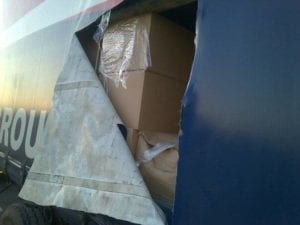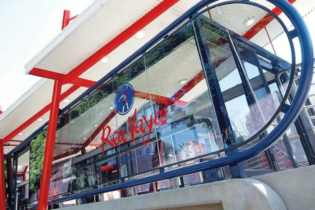The Department of Transport has introduced amendments to the National Road Traffic Regulations for goods-in-transit which could have far-reaching consequences for the agricultural transport industry – including a requirement that goods-in-transit be “fully insured”.
In terms of the amendments, effective from 31 January this year, transport operators now need to provide written evidence that both vehicles and goods to be transported on a public road are insured “for damages that can occur as the result of an incident”. The insurance must be taken out either by the “consignor” (a person dispatching more than 500 tons of goods in a month by road) or the “consignee” (a person receiving such goods). “If a transport operator cannot produce the required evidence of insurance, the consignor and consignee are obliged not to transport or accept goods respectively. However, it is not very clear what ‘fully insured’ means since there are different risks involved with the transportation of goods,” says Gerhard Diedericks, head of Santam Agriculture. “For example, a road accident can cause damage to the carrying vehicle, the goods, road infrastructure, vehicles driven by other road users and pedestrians. An accident can give rise to indirect damages such as economic loss caused by the delay of the delivery of the cargo. The list is endless and not every possible loss can be insured.” “It is advisable to check with insurance providers what their standard policies cover. This includes costs incurred by the policyholder for the clean-up and remedial procedures to remove or repair the effects of spillage or leakage of any substance carried on or by the insured vehicle, in the custody and control of the insured,” adds Diedericks.The largest insurance claim processed by Santam’s heavy commercial division in 2014 was for a hefty sum of over R1 million – for goods only. The insurer paid out a total of 1504 goods-in-transit related claims to the value of more than R54 million from January to December 2014. The type of goods that are typically insured by in this category include any commodity type goods including household stock, perishables, livestock, hazardous goods, agricultural goods and equipment, vehicles, earth moving equipment, information technology products and industrial machinery.
Diedericks says the regulations do not stipulate who is responsible for what insurance – what the consignee is responsible for, and what must be taken out by the consignor. “We recommend that the carrier and the consignor should procure the cover reasonably required in the circumstances. A cargo owner should have goods-in-transit insurance, while the carrier should take out carrier’s liability insurance and motor vehicle insurance.” Other amendments to the regulations require the transport operator to be in possession of a written declaration setting out the nature and quantity of the goods to be transported. It must also include a written agreement between the consignor and the operator, stipulating loading instructions and the responsibilities of the parties. Furthermore, the regulations now prohibit a consignee or consignor from concluding a contract with an operator if the vehicle is overloaded in terms of the National Roads Traffic Act. The consignor is obliged to keep a record of the mass of every load transported from his or her premises, which must be made available to a traffic officer if requested. “Complying with all these new amendments may be challenging to road hauliers and consignors, especially when it is not clear who is responsible for what. Current agreements and policies may need to be revised to take into account their effects, and we recommend consulting a professional adviser to ensure that the appropriate cover is in place and to ensure compliance,” Diedericks concludes.






